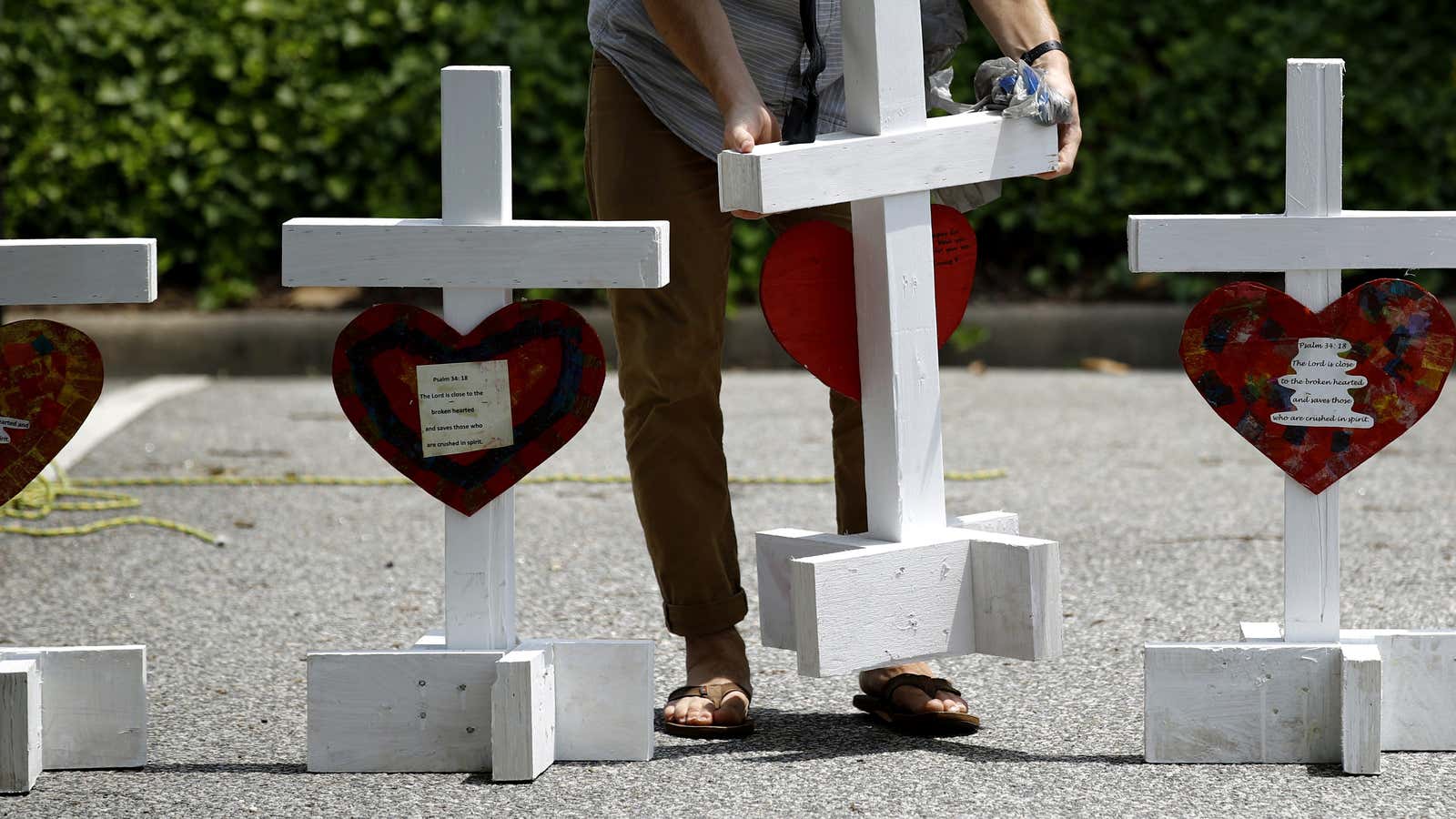When police in Virginia Beach announced the name of the person who killed 12 people at a public works office May 31, they did so with a caveat: they would never repeat it again.
“We’re going to mention his name once and then he will be forever referred to as ‘the suspect,’” Virginia Beach Police Chief James Cervera told reporters. “Our focus now is the dignity and respect to the victims in this case and to their families.”
The department’s decision was not an isolated one. Rather, it reflects a growing body of research suggesting that the language used to report and discuss mass shootings may play a role in preventing future ones.
According to the Mass Shooting Tracker website, the Virginia Beach attack was the 172nd such incident in the US this year. The frequency of these attacks has given law enforcement officials and academics plenty of data. They’ve found that perpetrators of such crimes are often motivated by a desire for fame and attention. Obsessive media attention to previously obscure suspects after a shooting can inspire copycat crimes.
Don’t Name Them, an initiative out of Texas State University’s Advanced Law Enforcement Rapid Response Training Center, offers guidelines for local agencies and media on reporting details of mass shootings. A similar group, No Notoriety, was founded by the parents of Alex Teves, a 24-year-old victim of the 2012 movie theater shooting in Aurora, Colorado.
Neither advocates masking the truth of a crime from the public. Specifically, they suggest limiting the use of a suspect’s name and photograph, particularly in ways that offer a macabre kind of glory. Reprinting the self-aggrandizing selfies a killer has posted to social media prior to an attack, for example, is not helpful.
Withholding facts from the public goes against many journalists’ instincts, and feels uncomfortably like self-censorship. But there’s precedent for strategically omitting details from reporting in order to prevent further harm. It’s the reason victims of sexual violence are typically not named in media reports, and why media outlets often don’t report on crimes like international kidnappings if there’s fear it could harm the victim’s chance of survival.
And there’s evidence to show these kinds of omissions are effective. Widely-publicized guidelines for reporting on suicides have lowered the risk of subsequent deaths after high-profile deaths by suicide. In the absence of meaningful gun control legislation, words may be one of the only preventative options available.
